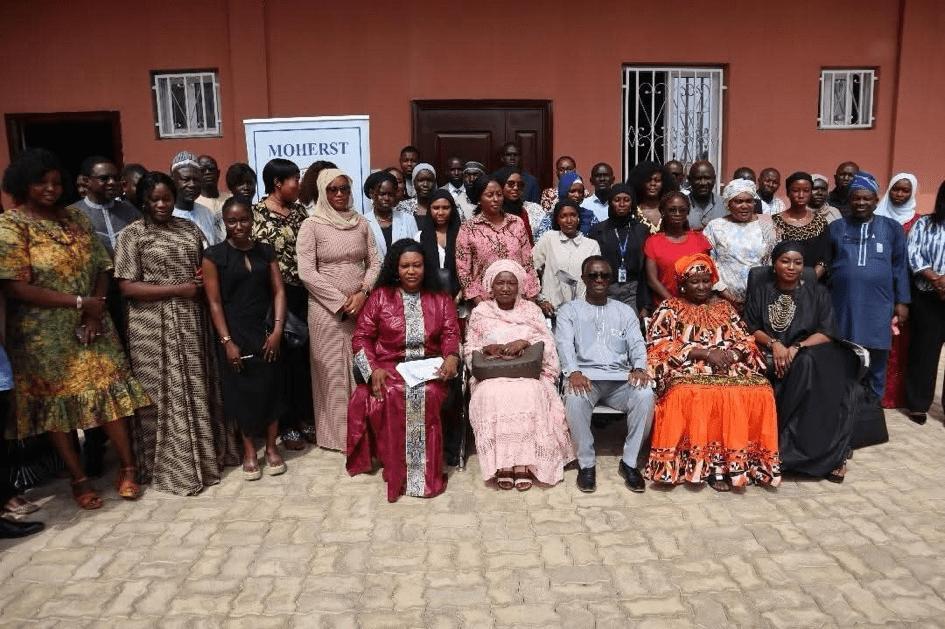Africa-Press – Gambia. The Ministry of Higher Education, Research, Science and Technology (MoHERST) has officially validated its first-ever National Gender Inclusion Policy 2025-2029 aimed at enhancing women’s inclusion in tertiary and higher education, as well as in leadership roles.
This validation event, held recently at the ministry with support from the Commonwealth of Learning, involved key stakeholders and was based on a comprehensive survey conducted across higher education institutions in late 2024.
The strategy marks a historic achievement to boost female enrollment, participation, and representation in higher education and decision-making positions.
The validation workshop also gathered insights, reinforce commitments and ensured that the policy aligns with the needs and aspirations of women in higher education across the discussions, sharing experiences and strategies to advance gender parity and inclusive practices within universities and colleges.
Prof Pirrie Gomez, minister of higher education, stated that the gender inclusion policy for tertiary and higher education, is not just a policy document, but a beacon of hope.
“In Africa, women constitute 51% of the continent’s population while in The Gambia the female population is above 51%. These are significant figures which should concern the government and policy makers,” he said.
Minister Gomez highlighted the underrepresentation of females in STEM fields, academia, and in decision making due to cultural biases and inadequate support structures.
“With the advent of this new policy, the tertiary and higher education sector can now boast of institutions and a workforce that is gender sensitive and ready to champion equitable societal transformation through higher learning opportunities for both genders,” he added.
Minister Gomez noted that the policy document will serve as a tool in the fight against systemic discrimination, barriers, and marginalisation of females, persons with disabilities and underrepresented groups in the tertiary and higher education sector.
He emphasised that the gender inclusion policy signals a collective response to social justice and thrives toward educating and empowering females.
The permanent secretary at MoHERST, Jainaba Jagne, described education as one of the most powerful tools for attaining transformative development but she insisted that it can only empower when it is equitable, inclusive and free from discrimination.
She said the gender policy is envisaged to promote gender equity and inclusion in tertiary and higher education to achieve economic growth and sustainable development.
Dr Aminata Sillah, the consultant, presented a comprehensive overview of the gender and inclusion policy 2025-2029. She explained that the policy is designed as a strategic framework to close gender gaps, promote disability inclusion, and build safer and more equitable learning environments across both public and private tertiary institutions.
For More News And Analysis About Gambia Follow Africa-Press






